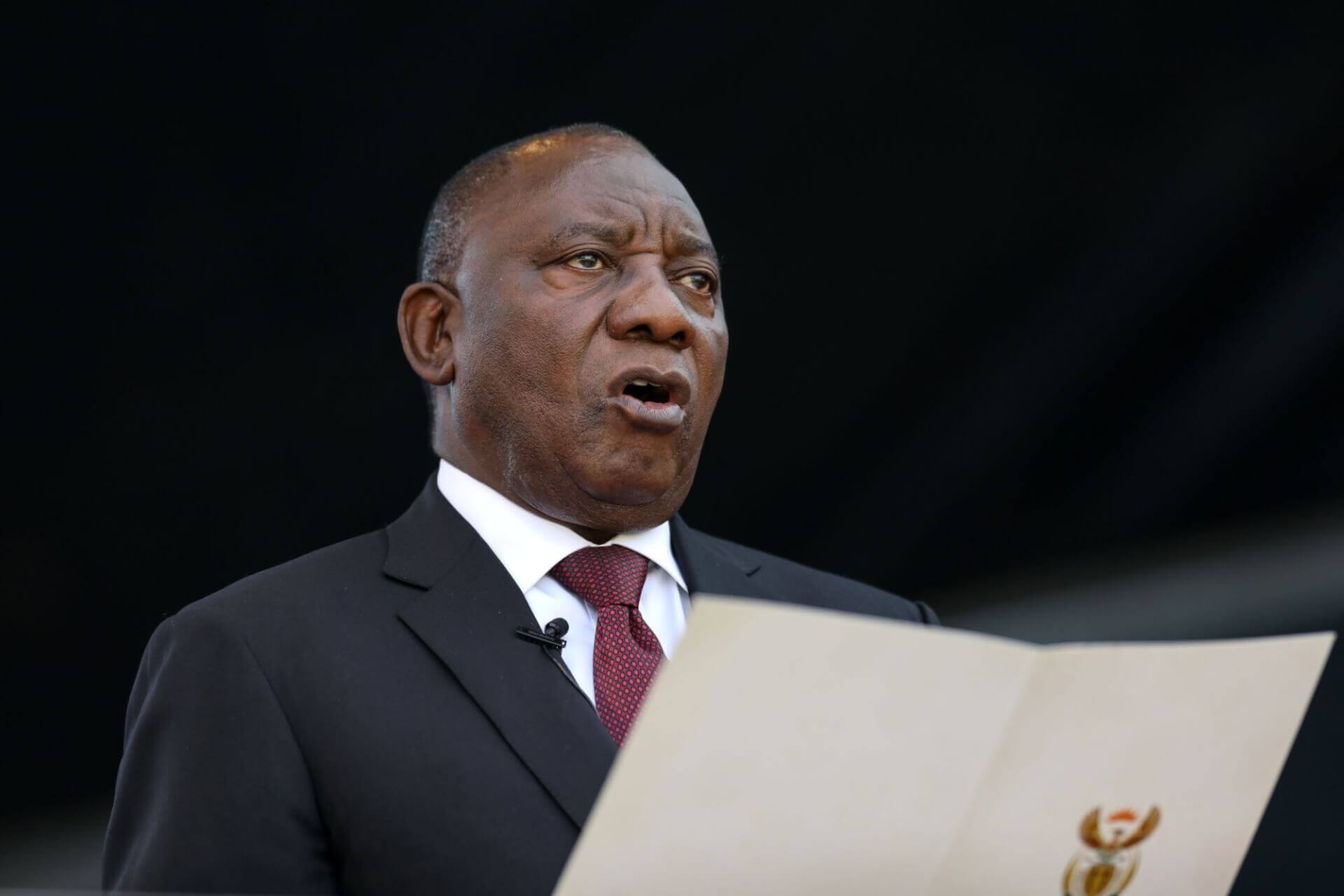On Tuesday, South African President Cyril Ramaphosa chaired a virtual meeting of the Committee of African Heads of State and Government on Climate Change (CAHOSCC) in his capacity as the coordinator of the Committee. Also in attendance was African Union (AU) Commission Chairperson Moussa Faki Mahamat.
In his speech, Ramaphosa noted that the meeting was being held on the heels of World Environment Day, which took place on 5 June, and overlapped with the launch of the UN Decade on Ecosystem Restoration 2021-2030. It also closely follows the virtual Climate Summit of World Leaders convened by United States (US) President Joe Biden in April, which saw the participation of 40 leaders from across the globe.
The South African leader remarked that the COVID-19 pandemic has “exposed our socio-economic vulnerability and increased our debt burdens,” both of which have presented new challenges in the pursuit of fulfilling Sustainable Development goals, and meeting the climate action goals stipulated in the Paris Climate Accords and the governance and economic strategies outlined in AU’s Agenda 2063.
He stressed, however, that climate change continues to remain at the forefront of policymakers’ decisions, seeing as climate change costs the African continent between 3 and 5% of GDP growth every year. This economic damage is brought on by the adverse impacts of droughts, floods, and cyclones, and other extreme climatic events, all of which have “caused enormous damage to infrastructure and displaced thousands of people.”
Similar to what was discussed at last week’s BRICS summit, which was attended by South African Minister of International Relations and Cooperation Naledi Pandor, Ramaphosa said it was crucial to acknowledge the varying stages of development that countries are in. He opined that this means that it is not realistic to expect developing countries to set the same climate targets as developed countries. Ramaphosa said, “Progress in addressing the global challenge of climate change can only be made when we all honour our mutual commitments and respect our common, but differentiated responsibilities.”
That being said, he emphasised that everyone must contribute in their own way, stating, “It is absolutely imperative that everyone must contribute their fair share if we are to limit global warming to the agreed target of well-below two degrees, build the resilience of our economies and ensure the safety and well-being of our citizens.”
To this end, he reiterated the Committee’s “unwavering support for the full implementation of the UN Climate Change Convention and its Paris Agreement,” which he said must be complemented by a “strong and well-coordinated Common African Position.”
Keeping this in mind Ramaphosa declared: “We need to send a clear message that all African countries require support from international partners and that our development space should be respected to achieve our climate goals and ambitions, while contributing our fair share to the global effort.” He added, “We need recognition of our different national circumstances and capacities as it is not realistic to expect us to meet the same timelines as developed countries to transition our economies and to disinvest from fossil fuels.”
The South African president said that African nations must focus on addressing “high levels of inequality [and] unemployment,” implying that the strategies to do so may be carbon-intensive. He did note, however, that in December 2020, the African Ministerial Conference on the Environment adopted the African Green Stimulus Programme to incorporate sustainability into post-pandemic economic recovery through the “scaling up of resource mobilisation, capacity building, and technology development.”
The CAHOSCC was formed in 2009 by the AU Assembly of Heads of State and Government to formulate the African Common Position on Climate Change and promote greater coordination in the climate action strategies of African countries.
Ramaphosa Says Africa Can’t Follow the Same Climate Action Timelines as Developed Nations
The South African President said, “it is not realistic to expect us to meet the same timelines as developed countries to transition our economies and to disinvest from fossil fuels.”
June 9, 2021

South African President Cyril Ramaphosa SOURCE: AFP
